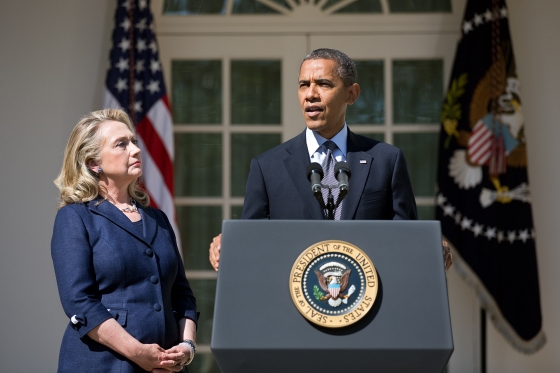I was randomly reading through old files tonight and found this. Talk about #TBT!
This is a short essay I wrote in September of 2012, shortly after the horrific attack on the American embassy in Benghazi.
I post it below without any major change of content (which is slightly embarrassing considering some of the phrasing I use).
Full disclosure, some terminology was changed (noted in brackets) to create a more cohesive piece.
Missing the Point in the Middle East
America is living in denial of a new terror offensive. As the picture surrounding the September 11 attacks on embassies in Libya and Egypt comes into greater focus, it is apparent that the Obama administration and the media are not telling Americans the whole story at best; or are entirely unaware of the significance of the attacks at worst.
The popular narrative being bandied about is that a pitiful film was circulated on the Internet, broadcast by an Islamist Egyptian channel, which then sparked a wave of global protests amidst profuse American apologies and affirmations of Islam. The tragic results are by now well known.
The underlying assumptions of this narrative are that the incidents were purely reactionary, do not accurately reflect the nature of Islam, and that the attack would not have happened were it not for the film. These assumptions, however, betray a shallow understanding of Islamic fundamentalism.
Islamic fundamentalism is not some reactionary agent in the Middle East, nor is it some splinter of Islamic society. The Muslim Brotherhood, the original Islamic fundamentalist group, was established in the early part of the 20th century with a defined policy of creating an Islamic society. That policy has not changed in almost one hundred years, even with the export of fundamentalism around the Islamic world and into divergent strands of Islam (note that Shia-led Hezbollah has been just as vociferous in its condemnation of the film as the Sunni-led Muslim Brotherhood).
Across the Middle East, the fundamentalist groups have spent time and treasure at promoting their cause at every level of society. From book vendors I have passed on the streets of Fes to the takeover of Egyptian media outlets, fundamentalists have worked tirelessly to build a solid constituency. And they have succeeded as the elections in Tunisia and Egypt have demonstrated.
Once in power, these parties have been able to [advance] their policy of strict adherence to Islam more directly than ever before. However, they have one problem: America. The dominant foreign entity in the region provides support to pro-democracy groups, but cannot be directly confronted. So these newly empowered parties revert to the same strategies that were employed to destabilize the regimes they replaced: deniable protests.
Protest is understood in America to be an expression of free speech, an act of political rhetoric. In the Middle East, however, the protest is a political weapon that is deftly wielded by opposition groups who have little real access to the halls of political power. The protest, when violently employed, does damage to the image and legitimacy of a ruling power, while allowing its organizers a degree of anonymity and deniability.
Now in power, fundamentalist parties can turn this wonderfully deniable weapon against their archenemy, the United States. And they have. Will it be the weapon of choice, will we see more protests in the near future? Probably not every day, but on the anniversary of September 11th what better way to serve notice to the United States that she is an unwelcome guest?
Is this some broad, region-wide conspiracy? No. Like I said, this removal of the United States from the region is policy, and fundamentalists are not so secret about that, so we should not be surprised when multiple fundamentalist parties act in de facto concert to let America know what they are thinking.
What about the non-fundamentalist Muslims, like the brave souls in Benghazi, who have resisted the fundamentalists? Brave souls indeed, but without any real leadership, sense of purpose, or real staying power. And, unfortunately, America has a poor track record of being a consistent friend to such groups, especially if they are unable to obtain political control (reference America’s sudden withdrawal from supporting Kurds and Shiites in Iraq in the 1990s).
What we are seeing in the Middle East right now is the emergence of a new front in what [Western societies] deny, and [Islamic] fundamentalists affirm: A “clash of civilizations.” Fundamentalist parties gaining power across the region will be making it increasingly difficult in the coming months for American assets and interests in the region to maintain their security and do their jobs. If our current administration is any indication, America will continue to ignore intelligence of the trend and apologize for the hate of others, believing that sooner or a later a more benign, egalitarian Islam will assert itself. Until such a day comes, we are faced with an adversary of increasing strength in the face of our intransigence, and the people of the Middle East are less free because of it.
I chose to add the one link to provide contextual information, but refrained from adding others so that the reader can go do their own news searches and draw their own conclusions on my analysis. What do you think of the analysis? Let me know in the comments below!
Photo: Official White House Photo by Lawrence Jackson [Public domain], via Wikimedia Commons. President Obama’s Sept. 12, 2012 statement on the Benghazi embassy attack.


